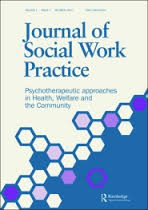Recognizing and responding to loss and ‘rupture’ in older women’s accounts
In the current context of service, emphasis on the body and impairment mean that emotional experiences are given little space within public health and social care services. Further, as much of what occurs between worker and client remains unsaid, older women’s subjective interpretations become more and more difficult to hear in the current context of care. This is especially the case when the age difference of the older women and their workers are considered. In this paper, I focus on how particular types of time‐based statements embedded within older women’s narratives on ‘frailty’ can be read around rupture and loss. Drawing attention to these statements highlights the importance of close listening and working therapeutically from the discursive clues of lived experience. Overall, older women’s accounts teach us that providing the space to articulate difficult emotions is crucial to fostering connections across age and generational boundaries and allowing older women to articulate their own ‘successful’ responses to the challenges of late life. At the same time, recognizing and accounting for the experiences of loss also forms a strong counter‐perspective to the rational–technical practices increasingly used in Canadian health and social care practices.

